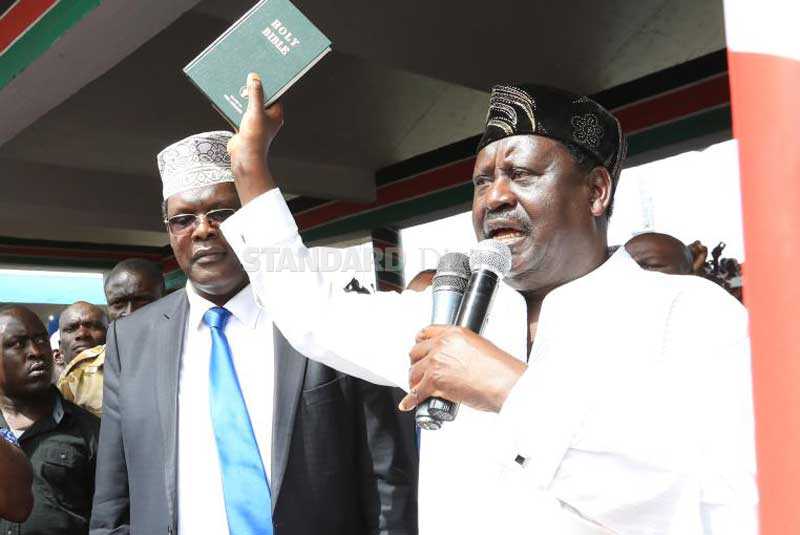×
The Standard e-Paper
Smart Minds Choose Us

Today, Raila Odinga will wake up at his Karen home as one of two persons - hero or villain - having long cemented his persona into a version of either of these two extremes, never a hybrid of both.
The 73-year-old has always stood at the cusp of history, only time will tell whether he was on the right side of it, or the wrong one.